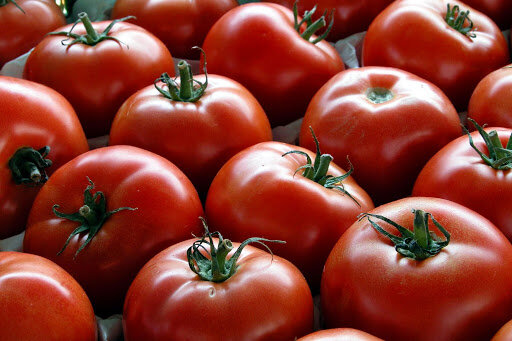Tomato exports at $97m in 2 months

TEHRAN- Iran’s exports of tomatoes reached $97 million during the first two months of the current Iranian calendar year (March 21-May 21), Press TV reported, citing the data released by the Islamic Republic of Iran Customs Administration (IRICA).
Iran is earning tens of millions of dollars each month from exports of farming products despite trade bans imposed on the country and a new coronavirus pandemic which has seriously affected cross-border shipments.
IRICA figures indicated that Iran had shipped a total of nearly 210,000 tons of tomato to other countries between late March and late May. Main export destination included Iraq, which received more than half of the tomato shipments, followed by Afghanistan and the United Arab Emirates.
A spokesman of the Iranian customs office said that Iran could have further increased its exports of farming products over the past two months if restrictions imposed over the COVID-19 pandemic had not caused a halt to shipments.
Rising exports of agrifood from Iran have played a key role in government policies to offset the impacts of the American sanctions on the country’s sale of oil.
The exports have also caused a major boom in Iran’s agriculture sector, encouraging expanded farming for profitable crops across the country.
Iran’s agricultural products and foodstuff exports hit 7.104 million tons worth $5.8 billion in the past Iranian calendar year (ended on March 19).
In the previous year, over 6.941 million tons of agricultural and foodstuff products worth $6.392 billion were also imported into the country.
Watermelons, apples, tomatoes, potatoes, onions, and shallots were the top five exported products in the previous year in terms of weight, while in terms of value, pistachios, apples, tomatoes, pistachio kernels, and watermelons were the five major exported products.
Corn, barley, soybean meal, soybean, and untreated sugar were the top five imported items, while in terms of value livestock corn, rice, barley, and soybeans were the top imported products.
Leave a Comment